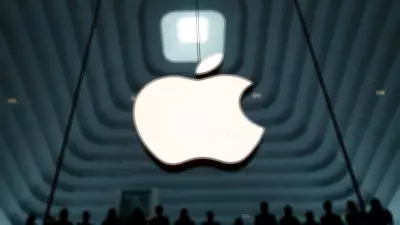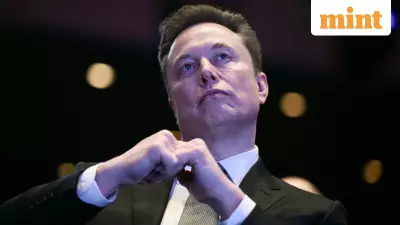
The launch of ChatGPT in November 2022 marked a watershed moment for artificial intelligence, capturing global imagination and triggering an unprecedented tech race. But as the AI revolution accelerates, economic data reveals a puzzling trend: shrinking employment figures alongside surging stock markets.
The Economic Paradox: Fewer Jobs, Higher Valuations
Recent analysis of global economic indicators shows a curious correlation. Since ChatGPT's debut, employment growth has slowed significantly across multiple sectors, while technology stocks have experienced remarkable gains. The NASDAQ, heavily weighted toward AI-focused companies, has surged approximately 40%, painting a picture of technological triumph.
However, economists caution against drawing simple conclusions. "While the timing aligns with AI's mainstream adoption, correlation doesn't equal causation," explains Dr. Priya Sharma, economic researcher at the Indian Institute of Technology. "Multiple macroeconomic factors are at play simultaneously."
Beyond the AI Hype: Other Contributing Factors
The employment landscape is being shaped by several intersecting forces:
- Post-pandemic economic normalization: Many industries are still adjusting to new work patterns and consumer behaviors
- Global economic slowdown: Inflation concerns and monetary policy tightening affect hiring decisions
- Industry-specific transitions: Some sectors are naturally evolving while others face structural challenges
- Geopolitical uncertainties: Supply chain disruptions and international tensions impact business expansion plans
The Indian Context: A Mixed Technology Impact
In India, the AI revolution presents both opportunities and challenges. The technology sector has seen significant investment in AI capabilities, creating high-skilled positions while potentially reducing demand for routine cognitive tasks.
"India's IT services industry is at a critical juncture," notes Rohan Mehta, CEO of a Bangalore-based tech firm. "We're training thousands of employees in AI implementation while carefully managing the transition of existing roles."
Stock Market Euphoria Meets Employment Caution
The stock market's enthusiastic response to AI reflects investor confidence in long-term productivity gains. Companies announcing AI integration strategies have frequently seen immediate stock price increases, regardless of short-term implementation costs.
Meanwhile, businesses approach hiring with increased caution, investing in automation and process optimization. This creates a temporary disconnect between financial markets and labor markets as organizations restructure for an AI-augmented future.
The Verdict: AI's True Impact Still Unfolding
While AI undoubtedly contributes to workforce transformation, most economists agree it's premature to blame artificial intelligence exclusively for employment contractions. The technology's full impact will likely unfold over years rather than months.
The current economic landscape represents a complex interplay of technological disruption, cyclical trends, and strategic business decisions – a transformation where AI acts as both catalyst and accelerant rather than sole driver.
As businesses and workers adapt to this new reality, the true measure of AI's economic impact will become clearer. For now, the data suggests we're witnessing not just technological transformation, but the beginning of a fundamental reimagining of work itself.





